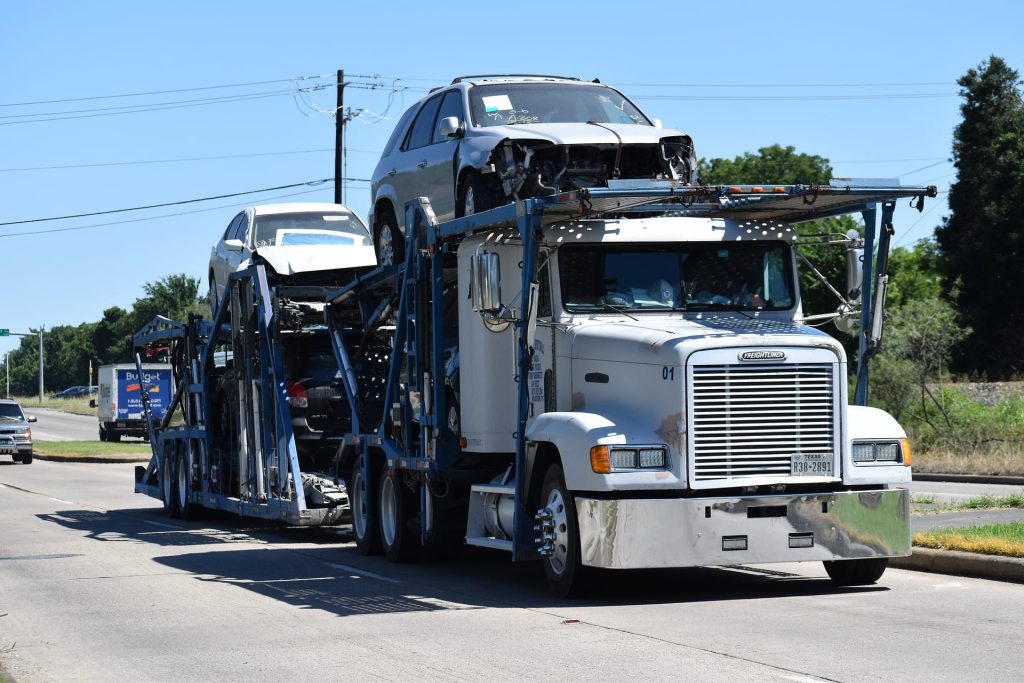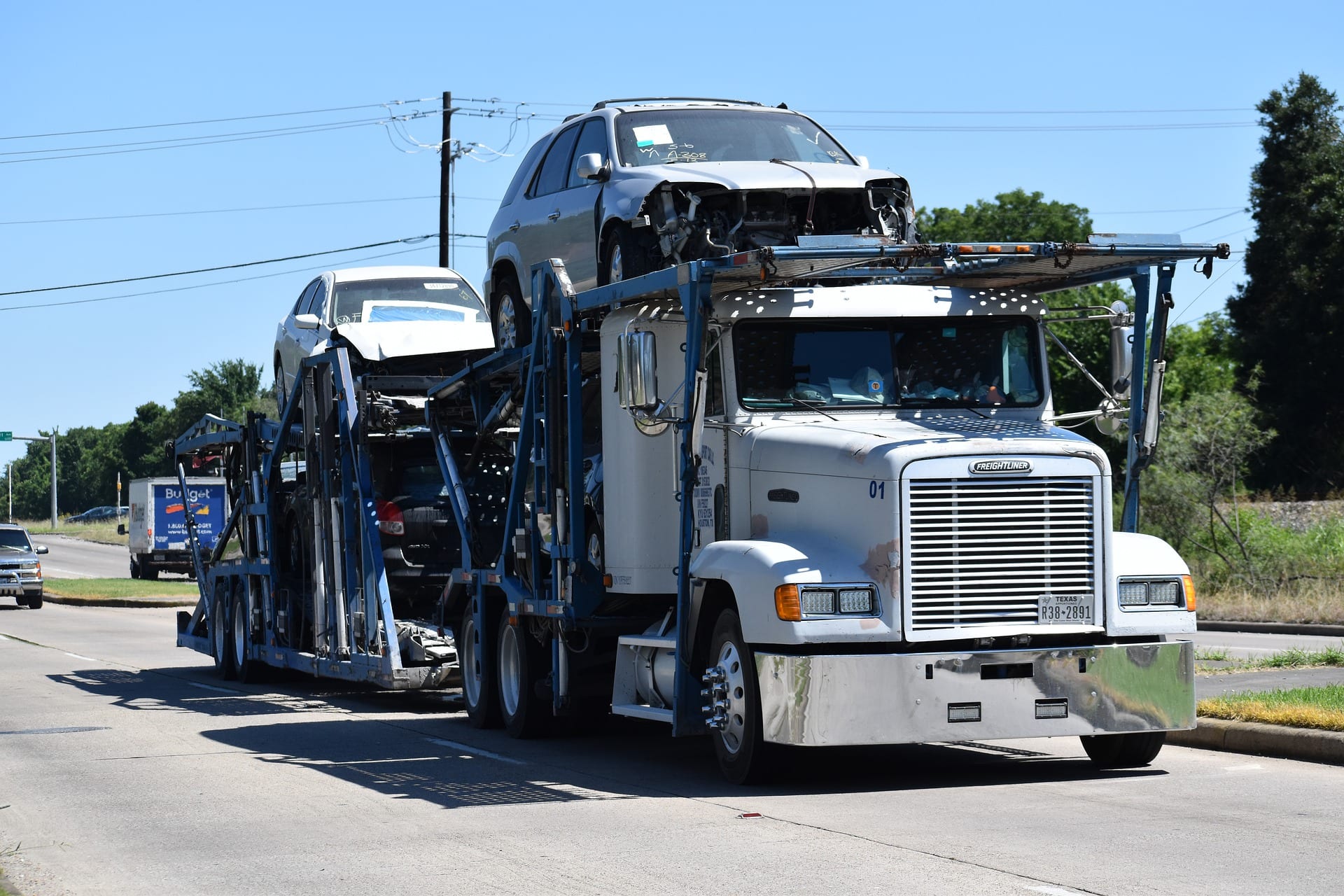Types of Trucks, According to Insurance
We all know what a truck is and we would have no problem distinguishing it from other types of heavy vehicles. However, there are different types of trucks, with different characteristics, sizes, and uses.
Truck insurance takes these elements and the goods they transport into account when calculating the risks. That is why we are going to talk about the types of trucks and their characteristics, from the insurers’ perspective.
When we talk about trucks, we probably all think of large vehicles used to transport goods by road. Perhaps the first image that comes to mind is that of an articulated lorry with a semi-trailer, like the ones we often come across on the road.
But trucks are also the smaller rigid vehicles that many companies and entrepreneurs use in their businesses to deliver goods or distribute their products.
The load of the truck is another element that determines the characteristics of these heavy vehicles. It could be said that trucks can transport goods of any type, from live animals to large pieces of concrete, automobiles, containers, and works of art.
There are tankers, refrigerated trucks, specialized heavy vehicles such as those used in construction… In short, there are many types of trucks and each one of them has its own characteristics which, together with other factors, help insurers to calculate Truck Insurance.
Types Of Trucks
In order to bring order among so much diversity, it is possible to establish some common characteristics that define these vehicles and organize them. We start from the assumption that trucks are defined as vehicles with four wheels or more, which are designed for the transportation of goods.
In addition, their main characteristics are that they are generally heavy vehicles with more than 3,500 Kilos, that their cab is not integrated into the rest of the bodywork and that they are equipped with a structure designed for the transport of goods.
From here, we can find different types of trucks, depending on their characteristics, if they are rigid or articulated, the use they are given, and the goods they transport.
Rigid And Articulated Trucks
It can be said that among these heavy vehicles there are two main types of trucks:
- Trucks
- Tractor Units
A truck integrates with a single vehicle the cab and the box or structure designed for the load.

They are called rigid trucks and, due to their characteristics, they are usually used for the delivery and distribution of goods. They can have a maximum length of 12 meters and up to 32 tons, meeting the requirements demanded for this purpose.
On the other hand, a tractor unit, also known as a tractor-trailer or, simply, a tractor unit, is a heavy vehicle designed to tow a semi-trailer. On its own, it is not considered a truck, but it is the tractor of the articulated trucks we see so often on the road.
The combination of tractor and trailer or semi-trailer is a very common articulated vehicle in the transport of goods.
Depending on their composition and size, these trailers can pull a large tonnage load. For this reason, many transport companies use tractors with semi-trailers to develop their logistic activity.
What Is The Difference Between An Articulated And A Rigid Vehicle?
As we have already seen, a rigid truck could be defined as a “one-piece” truck.
The body is connected to the cab and the rest of the truck components by the chassis, a structure of rigid beams that holds all the vehicle components together.
The articulated vehicle, on the other hand, is made up of at least two rigid structures, joined by an articulation point, one of which drags the truck as a whole. In addition, in articulated trucks, the goods are only transported on the semi-trailer, since the tractor has the exclusive function of towing the truck.
Articulated Trucks And The Road Train
As we have already pointed out, a trailer or articulated truck is a set of vehicles consisting of the tractor unit and the semi-trailer. The tractor pulls a semi-trailer, which is also known as a platform, barge, or simply a trailer.
However, what distinguishes a semi-trailer from a normal trailer is that these vehicles are designed to be coupled to the tractor, on which part of the trailer rests and transfers a substantial part of its weight to it.
The characteristics of articulated trucks are regulated so that the dimensions and maximum load that these vehicles can carry are limited. Depending on the size and axles of the tractor and its trailer, an articulated truck can haul up to 40 tons
A road train, on the other hand, is a set of vehicles consisting of a rigid truck and one or more trailers.
The difference with trailers lies in the fact that the two components of the road train can carry cargo, while in the articulated truck, the tractor only pulls the trailer.
In addition, a road train can hitch several trailers and in some countries, you can find compositions of up to 12 vehicles.
Mega-Trucks, The Giants Of The Road
However, we can find even more impressive transport vehicles. Since 2016, it is already possible to come across the so-called mega trucks
These articulated heavy-duty vehicles can reach 25.25 meters in length and move up to 60 tons, but they need special authorization to circulate and can only do so on freeways or dual carriageways.
They also have a speed limit of 80 km/h and, given their dimensions, they must announce their route in advance to the traffic authorities. If you want to know more about mega trucks, we tell you more in this post.
Types Of Trucks, According To Their Use
Another the element that the insurance company analyzes when quoting the cost of the policy is the use that the client will give to his truck. In general, trucks are vehicles for professional use only and are dedicated to loading and/or transporting goods of all kinds.
However, at the time of contracting the Insurance for the truck, the insurer will ask us if the truck will have:
- Private or private use
- Public or professional use
Trucks for public use are used to transport goods for third parties, who are normally the clients of the owner of the truck, whether it is a company or a self-employed professional.
Calculate The Price Of Truck Insurance
On the other hand, in the case of private use, these transfers would be carried out with their own goods.
Types Of Trucks, Depending On The Goods
The type of goods that a truck can transport is very important when calculating the premium of the policy. It is clear that transporting a load of sand and construction materials on a daily basis is not the same risk as driving a tanker full of diesel or any other hazardous substance.
All insurers distinguish between three types of trucks, depending on the cargo they carry:
- Transport of general goods
- Transport of aggregates
- Transport of dangerous goods
When insuring a truck, the insurer will look much more closely at vehicles used to transport potentially dangerous goods.
In fact, it is likely that in these cases the insurer will request additional information about this type of goods to certify their qualities and calculate the cost of the insurance.
Obviously, the insurance of a truck transporting dangerous goods is more expensive than that of other heavy vehicles, since the risk of an accident with serious consequences is higher.
Regarding the insurance of trucks transporting general goods, the insurer will also take into account the characteristics of the truck with respect to the load and, above all, its tonnage.
The size is relevant when pricing Truck Insurance, as many insurers set the premium price according to the tonnage of the vehicle.
Other factors related to the cargo are also taken into account, such as the carrier’s liability for the goods or the damage they may cause to third parties. If you are interested in the subject, in this blog we tell you more about coverage and Cargo Truck Insurance.
Insurance For All Types Of Trucks
In short, there are many types of trucks and a great diversity of cases that insurers study individually each time they are asked to insure a heavy vehicle of these characteristics.
In this sense, if you are thinking of taking out customized Truck Insurance or changing your insurance company, it may be interesting to count on the expert advice of an Insurance brokerage that has been insuring carriers and transport companies for decades.
